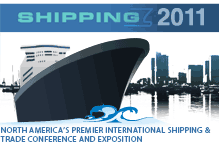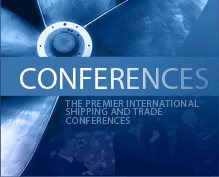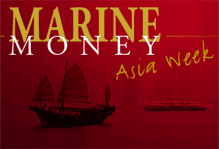
Mermaid Looks for Mr Right
Singapore listed Mermaid Maritime is planning a renounceable fully-underwritten rights issue of 243,542,403 new shares. The drilling and subsea engineering services provider plans to raise gross proceeds of approximately SGD 156 million (USD 110 million) at an issue price of SGD 0.64 per Rights Shares. The offering price represents a 29.7% discount to the closing price on 17 September 2009 and will be offered on the basis of 9 Rights Shares for every 20 existing shares.
As a demonstration of commitment and confidence in Mermaid, majority shareholder Thoresen Thai Agencies Public Company Limited (“TTA”) has provided an irrevocable undertaking to subscribe for all its entitlement and will also apply for excess rights shares to ensure it holds at least 51% of the total enlarged share capital of Mermaid in order to comply with Thai law requirements on majority Thai ownership.
The proceeds will be use to provide Mermaid with greater financial capacity to pursue both tactical and strategic growth opportunities. Merrill Lynch (Singapore) is the appointed manager and underwriter for the Rights Issue.
CIC Spends USD 850 million on Noble
Commodity trader Noble Group has placed 573 million shares to China’s sovereign wealth fund, China Investment Corporation (“CIC”), for a total consideration of USD 850 million. The issue price of SGD 2.1137 (USD 1.4956) was a 7.34% discount to the weighted average price of Noble shares traded on the Singapore Exchange between September 14 and September 15. In return, CIC is now a 15% shareholder in Noble and could play a larger strategic role in the group’s diverse agricultural activities, taking into account China’s strong appetite for commodities. CEO Richard Elman will reduce its shareholdings by 2% or 135 million shares while Noble will issue 438 million new shares to raise additional capital to pursue strategic investments in key agricultural markets globally. Continue Reading
The CSL Group Invests in Indonesian Flag
The CSL Group Inc. (“CSL”) of Montreal, Canada, a world-leading provider of marine dry bulk cargo handling and delivery services, has invested in the Indonesian flagged, floating offshore transshipment platform “FOTP Derawan”, constructed at the Yahua Shipyard in Nantong, China. The vessel will be operating offshore Kalimantan, Indonesia for PT Berau Coal.
This was a complex multi-jurisdictional transaction involving CSL’s international partners and its various subsidiaries. The Singapore office of Watson, Farley & Williams LLP advised on the overall transaction structure, the shareholders’ agreement governing relationships of the relevant entities, the loan and security agreements for the financing of the vessel and the various commercial agreements (including the construction contract and charter arrangements in relation to the vessel), which were necessary for the closing of the transaction. The transaction team consisted of Chris Lowe, Damian Adams and Ivan Chia.
Lease Your Ship in China?
Given the relative lack of funding support from the domestic banks, is leasing a viable option for the Chinese small and medium sized shipowners? There are over 1,400 leasing companies in China, according to an unofficial estimate, but very few actually have the capacity to deal with big ticket items like ships. However over the past two years, state-owned banks have established wholly-owned leasing divisions. Industrial and Commercial Bank of China (“ICBC”), China Construction Bank, China Development Bank, China Merchant Bank, Bank of Communications and Min Sheng Bank have all ventured into offering ship leasing services, and many of these specialised leasing units offer leasing services not only to ships but to other asset types such as industrial machinery and construction equipment as well. Bank of China Leasing for example is established in Singapore and offers aircraft leasing services.
There have been varying degrees of success. These state-owned leasing arms prefer to carry out leasing transactions with the first tier shipping companies in China to minimise counterparty risk, but interest has so far been limited, bearing in mind that these top clients have no lack of competitive funding support domestically. Some leasing companies have nonetheless found success with the state-owned power generation enterprises in China who have the need for coal transportation. Continue Reading
The China Story
The hammering and digging begin at sunrise and last well beyond sunset. Beneath the dust and dirt, Shanghai is making ready for its quest to become an international financial centre and shipping hub by 2020. Gazing at the iconic view of the Bund and the Pudong skyline across the Huangpu River, it is not hard to understand why Shanghai is a natural choice as a maritime hub. Ideally located on China’s east coast and the major East West trade routes, Shanghai serves as a major transportation hub for the Yangtze River Delta and is China’s most important gateway for foreign trade. Marine Money trotted to this magnificent city last week to understand the current challenges faced by the Chinese shipping community.
Much has been written in the press on the central government’s aggressive support for the shipyards, highlighting concerns that the excessive state financial intervention could endanger the commercial viability of many ocean shipping companies going forward. The government is well aware of the problem of overcapacity in the shipping sector, but at the same time, it simply cannot allow her core shipyards to fail. The economic and social costs will be too overwhelming to manage. But if we take a closer look, many measures introduced by the central government in reality are largely tailored for the more established shipyards and very few financial incentives have been rolled out for either the small and medium local shipowners or the smaller shipyards. Continue Reading
Liberty For Lunch
We had the pleasure of attending this month’s CMA Luncheon, which featured Philip Shapiro the CEO of Liberty Maritime as the guest speaker. Mr. Shapiro spoke about Liberty, U.S. preference cargo and his recent cause celebre, piracy.
Liberty operates in two sectors: dry bulk and Ro/Ro. Its fleet consists of 3 Handymax bulkcarriers, 3 Panamax bulkcarriers and three Ro-Ro vessels with a fourth, a newbuilding, to be added in March of next year. The vessels operate in the U.S. preference trades carrying government impelled or military cargos. In the main, the government cargoes are food aid under PL 480.
Shipping High Yield – It’s Back and Just in Time
By Ethan Ram, DVB Capital Markets LLC
In light of the recent offerings by Hornbeck and Seacor, Ethan Ram’s latest capital markets offering could not be more timely, as the industry searches for alternatives to bank debt.
The tight supply of ship mortgage debt has highlighted the shipping industry’s need for alternative sources of capital, and the role the capital markets can play in ship finance. In recent months, many shipping companies, public and private, have resorted to raising equity to fund themselves, in some cases diluting shareholders in order to bring themselves into compliance with their bank facilities. For those companies that are eligible, however, an alternative to issuing dilutive equity is to tap the high yield bond market, where recent developments have made conditions highly favorable for issuers.
The high yield market got off to slow start in 2009 in a continuation of the preceding four quarters of 2008 which saw the volume of new issuance shrink to the lowest level in nearly ten years and yields for the average high yield bond expand to over 20%. In April, however, there was a surge of new issuance and since then the high yield market has not looked back. Driven by a sustained period of net capital flows into bond funds totaling $15.9 billion (31 of the past 36 weeks have registered net inflows), positive market sentiment on the back of rising equity markets (the DOW and the S&P 500 have risen 48% and 56%, respectively, since their March lows), the past five months have seen a renewed investor appetite for high yield bonds. Today yields have compressed to below 9% for the average high yield bond and, despite the slow start, 2009 is on track to be a solid year in terms of amount raised and number of transactions.
Continue Reading
A Land of Opportunity
According to two ex-GE employees, Cao Deambrosio and Ron Petrunoff, the land of opportunity is Germany and they together with Peter Dohle Schiffahrts KG (“Peter Dohle”) and Hammonia Reederei (“Hammonia”) have formed Hammonia Overseas, an investment company which intends to raise capital to take advantage of distress opportunities in the bulk and container shipping sectors. Messrs. Deambrosio and Petrunoff will be focusing their efforts to raise capital here in the U.S. (mainly private equity and hedge funds), whereas Peter Dohle will be focused domestically and internationally.
OSG “Raises.” Independent Directors “Check”.
Today OSG increased the offer price for all the outstanding shares of OSG America L.P. (“OSP”) from its original offer of $8 to $10.25 following extensive discussions with OSP’s committee of independent directors, who have now deemed it to be fair. The increased offer price represents a 28% increase over the original offer and a premium of approximately 44% over the closing price of the units the last day prior to the announcement.
OSG currently controls approximately 77.1% of the equity, including 53.3% of the outstanding common units, 100% of the subordinated units and the 2% general partner interest.
One Step Forward One Step Backward and One Tentative Step….
Danaos Corporation reported this week that it had now obtained waivers from all its lenders covering all the prior breaches of financial covenants in its credit facilities as well as any subsequent breaches until October 1st 2010.
Less positive was the news that Zim Integrated Shipping Services stated that it is reducing unilaterally all of its long-term charter payments by 35% commencing September 1st for a period of 3 years. Danaos, which has 6 vessels on charter to Zim for 12-year periods, has not accepted this condition nor has it acquiesced to this reduction. The company is currently in discussions with Zim and is evaluating the situation.







